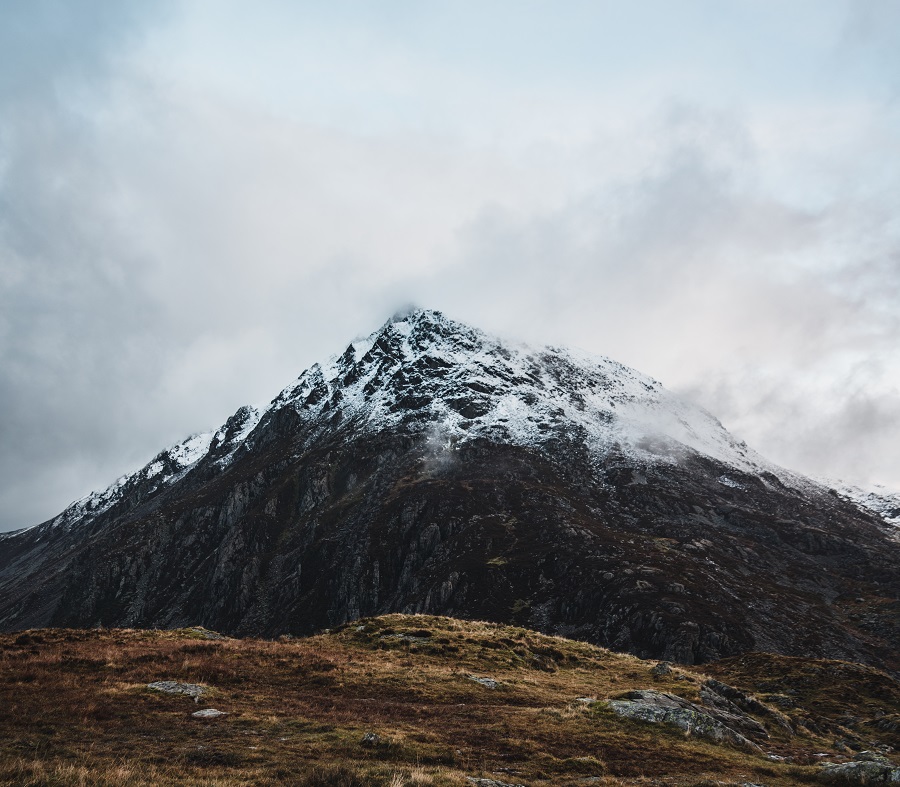
During winter hikes, especially in the mountains, your risk of ending up in dangerous situations is so much higher. The mountains can be a dangerous place if you aren’t fully prepared, please don’t attempt a mountain hike if you aren’t experienced at navigation or without a guide, it’s so easy to go off track with reduced visibility and snow covered paths, putting yourself and others at risk.
That said, even experienced hikers can be guilty of not preparing the right gear, even just having one single piece of your essential winter kit missing can lead to dangerous outcomes.
We have talked previously about beginners guide to hiking and what to wear on cold weather hikes with a winter layering guide, but below we’ve listed some absolute basic winter hiking gear safety essentials every hiker should have.
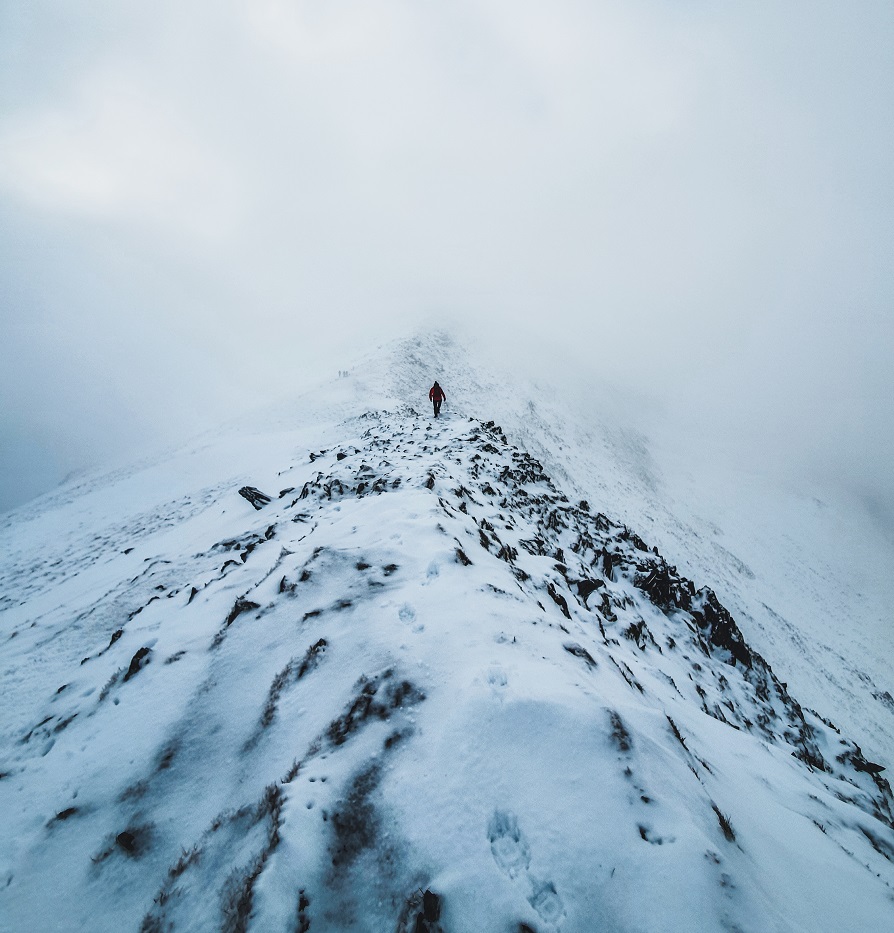
Basic Winter hiking gear safety essentials we recommend:
- Headtorch
- Dry bag
- Water purifier
- High energy snacks
- First aid kit
- Battery pack
- Waterproof gloves
- Hat
- Extra layers
- Waterproof jacket
- Waterproof boots
- Crampons
- Ice Axe
- Goggles
- Emergency shelter
1. Headtorch
We’ve put this at the top as during the winter months there are fewer daylight hours, its an absolute must-have for any hiker all year round, but especially during this time. We recommend always bringing a spare too, batteries drain quicker in colder temperatures so it’s useful to have a back up just incase.
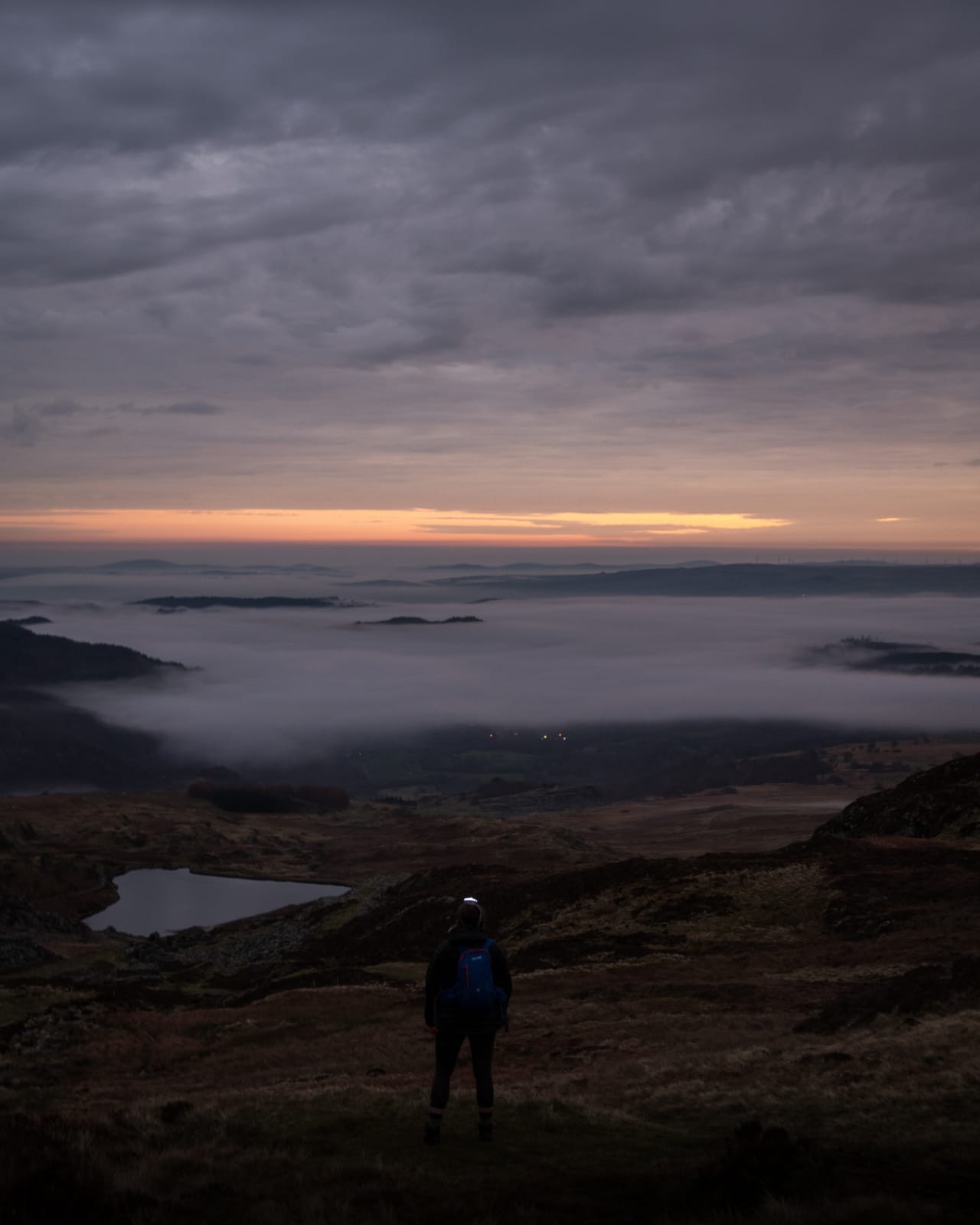
2. Gloves
Another absolute essential for Winter. You’ll need 100% waterproof, windproof, waterproof and thermal gloves. Your hands can get cold quickly and insulated gloves can protect you from getting numb fingers or even frost bite if you end up in a dangerous situation. We’d recommend packing spare too.
2. Dry Bag
When heading out on any rainy day adventure, you need to keep your valuable and safety essentials dry at all times. A waterproof backpack and dry bag are key for Winter.
3. First Aid Kit
For first aid supplies you can chose a ready made kit with all the basic safety essentials you’ll need, such as a foil blanket, sterile dressing and waterproof plasters. It’s important to be prepared for emergencies outdoors. A basic safety kit will be fine for hiking, but it’s a good idea to research for the type of trail as there might be specific hazards you need to plan for. You’ll also want to ensure your kit has an emergency shelter or bivvy bag.
4. Water Purifier
Having a water purifier is so handy and a key piece of kit every outdoor adventurer should have in their bag. Enabling you to have clean and safe drinking water on the go without having to carry extra weight. Dehydration can be quite dangerous if you’re reaching higher altitudes.
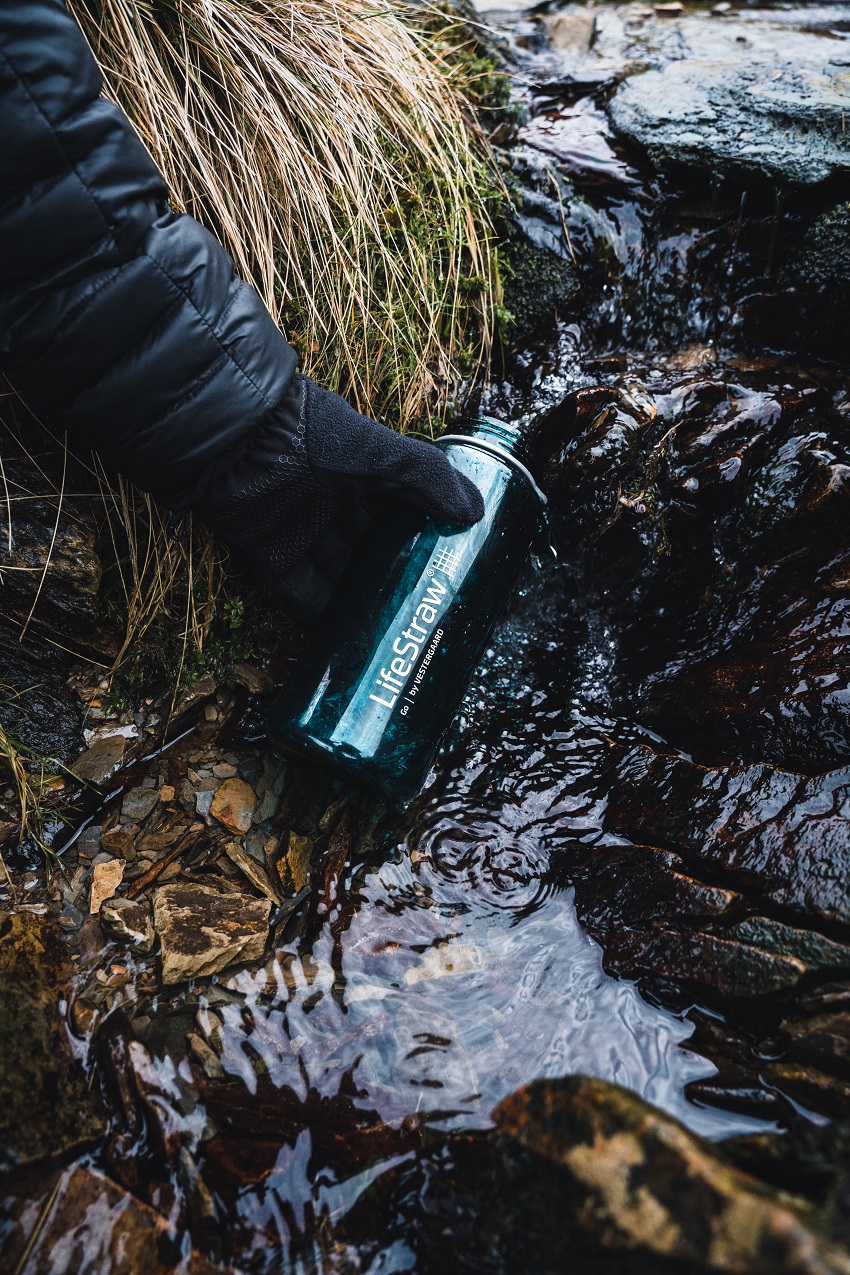
5. Power Bank
As mentioned above, batteries lose charge quicker in the cold (something to do with the chemical reactions proceeding more slowly when the ambient temperature is lower). Anyway, a portable power bank can come in handy for a backup charge, especially if you’re using your phone for navigational purposes. Aswel as for emergencies. You can find these cheap on Amazon or eBay.
6. High Energy Snacks
When hiking during the colder months you exert yourself and can burn up to 34% more calories, you have to burn more through ‘thermogenesis’ just to maintain your body heat. So high energy / calorie dense snacks are a great way to ensure you have enough fuel to keep going. Opt for a mix of protein packed and high carbohydrate bars such as CLIF bars (the white chocolate macadamia nut are unreal!) not only do they taste great, they’re carefully formulated for hikers. Glucose gels are also handy to have for a quick fix.
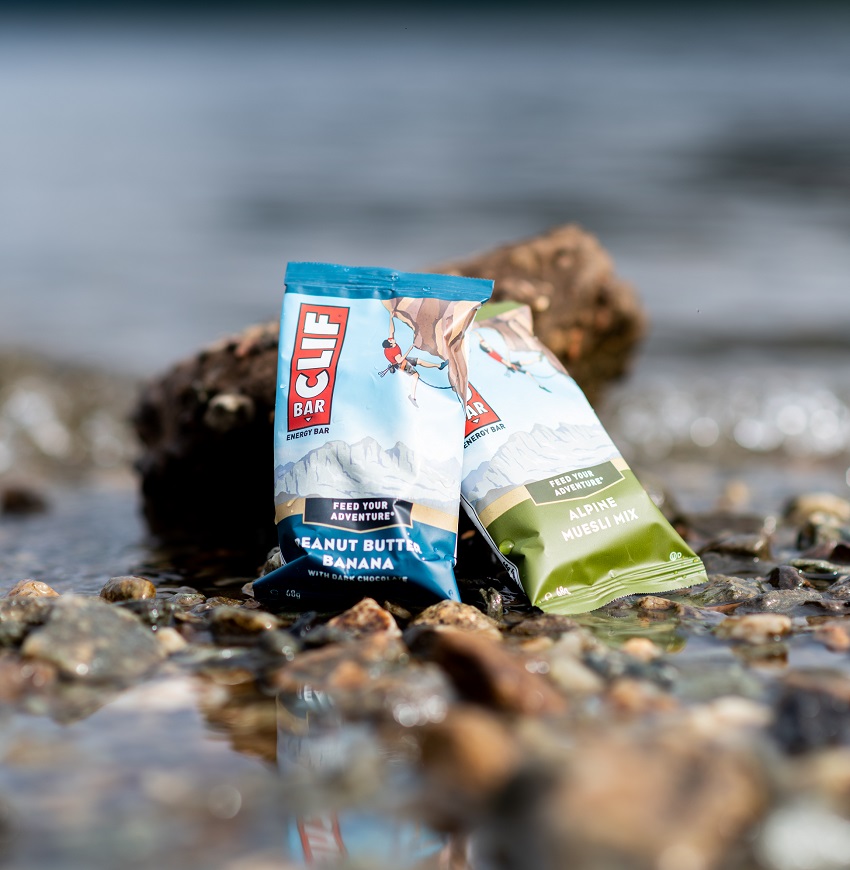
8. Layers
We’ve covered layering previously in more detail, but basic clothing you’ll require are a base layer, mid layer or fleece, waterproof jacket, waterproof trousers, thermal socks (such as ProTrek Adventure Trek with high density cushioning and arch support) and a warm hat. Layering is key for the winter months, its always a good idea to carry a couple of extra layers in your bag just incase.
9. Waterproof / Shell Jacket
Having a waterproof shell jacket is crucial for keeping dry during Winter temperatures, for keeping moisture at bay and protecting your base layers underneath. Check out our guide for layering here. Opt for a shell jacket that has deep pockets for easy access to items you’ll need to keep handy, and a decent hood that can be tightened.
10. Waterproof Boots
For winter mountain walks you’ll need to invest in a pair of quality B2 boots, recommended brands are Scarpa or Garmont. B2 are more sturdy, with a stiffer sole and indents for crampons. When looking for a quality winter boot you need to ensure they are fully waterproof, read reviews before purchasing, check what crampons are compatible.
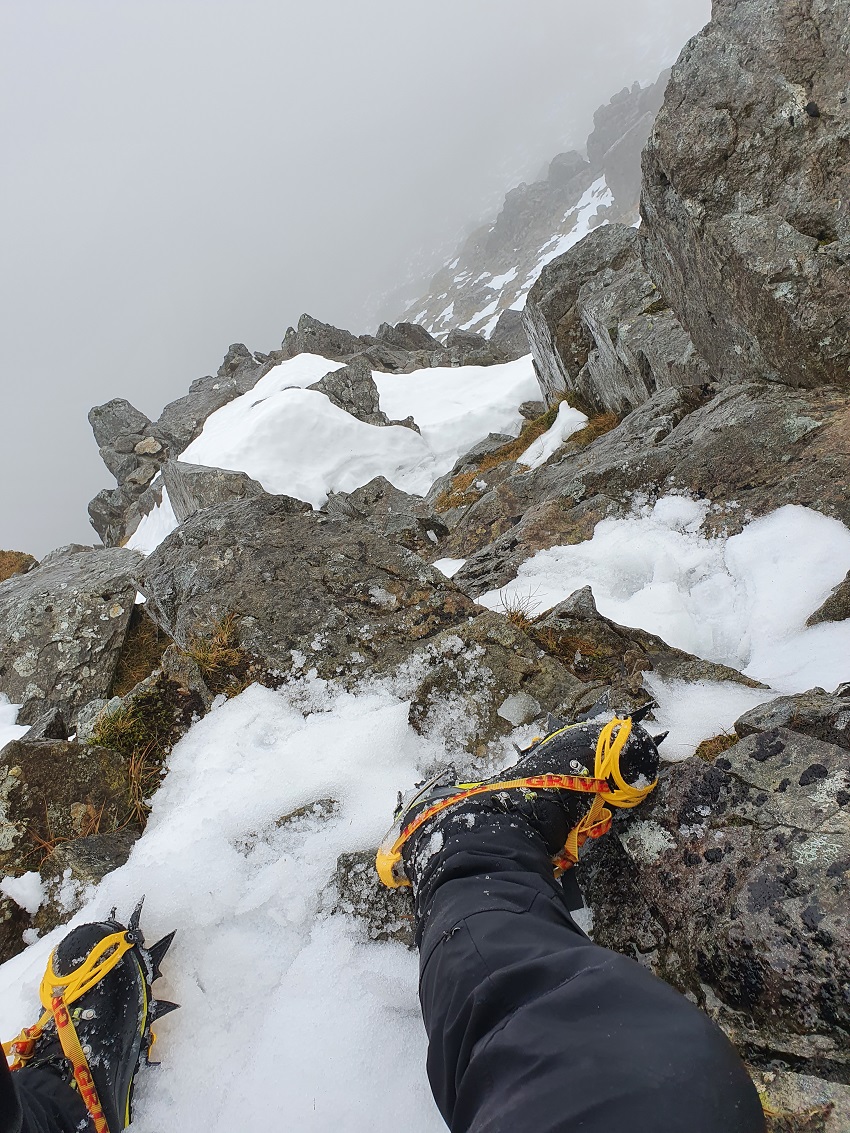
11. Crampons
Crampons are for hiking through snow and more icey terrain for better grip. Simply attach to your boot on route when needed. Ratings are similar to boots, C1, C2 and C3. Your crampons should match your boot, so for example if you have a B2 boot then you will need a C2 crampon. Before you venture out you should always adjust your crampons to fit your boot size and practice attaching them until you can do it without thinking.
11. Ice Axe
An ice axe is used to perform an arrest if you slip or fall on icey terrain. There are various types of axe, however for hiking you’ll just need a basic ice axe. If you have never used one before, we recommend heading out with someone experienced to show you have yo use it, alternatively watch YouTube videos on how to perform an arrest if needed.
12. Goggles
Googles are a necessity for Winter hiking, walking and mountaineering, an essential piece of safety kit not to be overlooked. An item you hope to never need but should carry just in case you get hit with a storm, we’ve been there and you do not want to be navigating yourself through a blizzard without full use of your eyes. Winter up in the mountains can be unpredictable, brutal and a dangerous place if you are not prepared. One piece of kit could mean the difference between life and death. We recommend the Photochromatic from Spektrum Sports, having reviewed countless pairs of Goggles, these have been by far the best quality and most long-lasting.

So there you have it, our guide to the basic safety essentials for hiking, remember to always research your route and ensure you have the right kit for the job and know how to use it before setting off.
Be safe, be prepared and have some epic winter adventures!